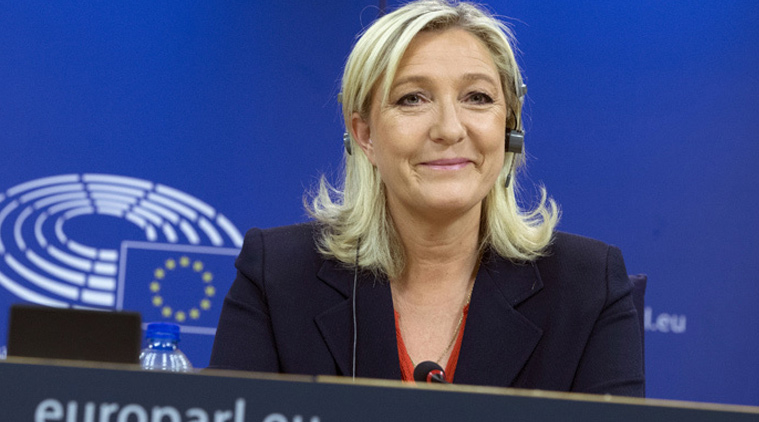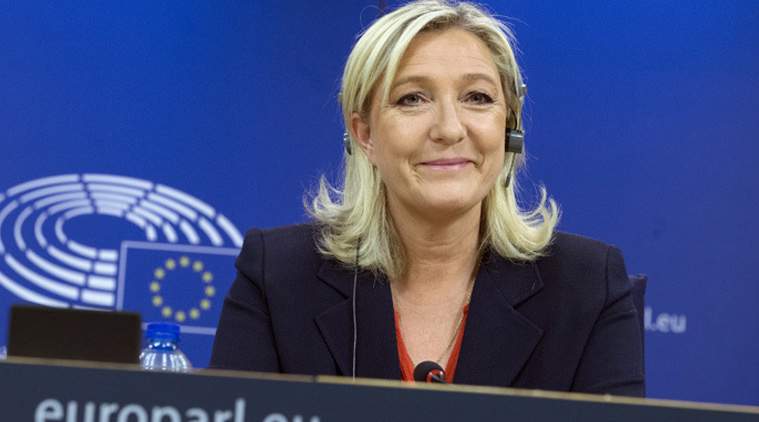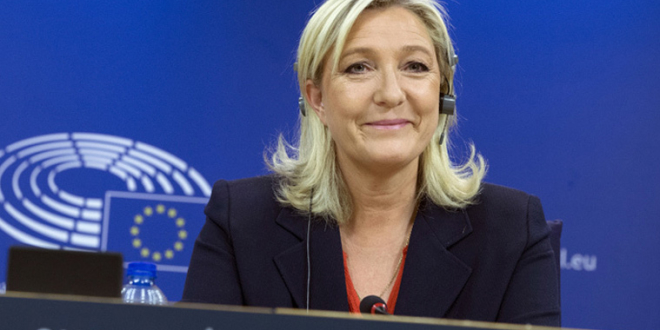
 The FN surge has been gathering momentum, with its vote share steadily going up in election after election. (Source: Reuters photo)
The FN surge has been gathering momentum, with its vote share steadily going up in election after election. (Source: Reuters photo)
With the just-concluded 2015 regional elections in France, the ultranationalist National Front (FN) has once more made its presence felt. There is no getting away from the fact that Marine Le Pen’s party has now become mainstream, nixing France’s de facto two-party system. Though it did not win a single region in Sunday’s election despite a historic performance in the first round, the French political landscape has changed radically, with the centre of gravity shifting towards the right.
The far-right FN may be the collateral beneficiary of the terror attacks on Paris last month, which added grist to its discourse on the growing climate of insecurity, but the signs have been there for a while. The FN surge has been gathering momentum, with its vote share steadily going up in election after election. From around 10 per cent in the last regional elections in 2010, it has tripled its vote share to 30 per cent in five years.
It would have performed better and wrested control of at least two of the 13 regions had France’s governing Socialist Party not withdrawn its candidates from regions where they were a distant third in favour of Nicholas Sarkozy’s centre-right Republicans. The move, coupled with a higher voter turnout than in the first round, effectively denied the FN a victory. However, it enabled the party to occupy the moral high ground by claiming that the left and right had manipulated and manoeuvred to thwart the democratic will of the people. As one FN leader put it, theirs was a “victorious defeat”.
On Sunday, leaders of the left and right also claimed a victory of sorts as the FN had been effectively blocked, but acknowledged that the danger posed by the anti-immigration, anti-European party had not been removed. True to form, they then held each other responsible for the FN’s inexorable progress. The left accused the right of playing the FN card by adopting similar hardline positions on immigration and security, while the right blamed the rise of the FN on the Socialists’ poor governance, rising unemployment and falling incomes.
The FN’s newfound appeal is in part due to its president’s successful efforts to “de-demonise” her party by eschewing the anti-Semitic, overtly racist discourse that was its trademark under her father, Jean Marie Le Pen. In part, it is also due to a narrowing of the ideological spectrum in the post-Cold War, with the left and right now proposing increasingly similar electoral manifestos. For dissatisfied voters, the FN appears to offer a real alternative.
In addition, the FN has finetuned its politics of fear, raising the spectre of immigration and refugees as the root cause of insecurity, terrorism, Islamist totalitarianism and joblessness. The hapless immigrant is represented as a potential terrorist and a job and social-benefits snatcher. Her Islamic culture is projected as a threat to “French” culture.
However, though immigration and security, along with anti-Europe rhetoric, are the FN’s main electoral planks, these are not the primary concerns of the typical FN voter, who essentially comes from the rural heartland. Public discontent is widespread in these areas where infrastructure remains poor, unemployment is high and the population, particularly the youth, feel marginalised and excluded. These voters are turning to the FN in a desperate bid for a better future that successive governments have been unable to deliver.
In the post-election soul-searching, both the Socialists and the Republicans claim to have seen the danger signals and have vowed to come up with new solutions to satisfy the aspirations of the people. The tactic of leaving a seat empty by withdrawing a candidate is an insult to the voter, who is asked to vote against his convictions just to counter the FN. Prime Minister Manuel Valls agreed that “We must show that we are capable of giving people back the desire to vote for, rather than just against.”
Time is of the essence. With just 18 months to go for the presidential elections and Marine Le Pen poised to go into the second round according to numerous polls, both Socialists and Republicans have their work cut out for them. Otherwise, as Socialist leader Jean-Christophe Cambadelis warned, “The land of human rights may well become the land of exclusion.”
![]()
Source: New feed






